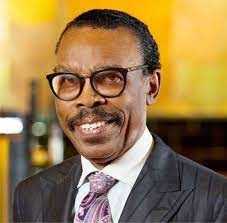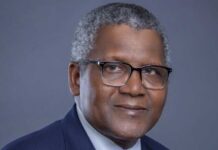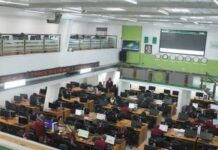Chief Executive Officer, Financial Derivatives, Mr. Bismarck Rewane has said that light manufacturing, a new version of financial services and Information and Communications Technology (ICT), are sectors that will drive economic growth in 2022.
Rewane made this known at the Lagos Chamber of Commerce and Industry Budget analysis session with the theme: “Budget Analysis for Business Intelligence” on Tuesday, in Lagos.
He outlined the other sectors to include transport and construction, affordable housing, agriculture as well as trade, particularly in the face of the Africa Continental Free Trade Area.
He, however, said that to drive optimal economic performance in 2022, implementation of the budget, which was more business-friendly and realistic, was pertinent.
The executive officer said that the gap between the budget’s objectives and funding requirements could only be bridged by the private sector, through domestic and foreign direct investments.
He noted that although the widening fiscal deficit as revenue continued to fall short of expenditure and the country’s external debt stock was fast approaching $40 billion dollars, it was still within the International Monetary Fund sustainability threshold.
The renowned economist said that to address the country’s fiscal challenges, there should be fiscal consolidation and quality investment in the productivity sector.
He added that diversification of revenue base, accountability; transparency, and good governance surrounding public finance and elimination of subsidies would also serve the purpose.
“Peculiar to Nigeria in 2022 will be the difference in politics, pre-election spending to drive up cash supply, the Apex bank’s likelihood to increase foreign exchange for manufacturers and oil price expected to average 70-85 dollars per barrel,” he said.
Dr Michael Olawale-Cole, President, LCCI, said the budget size reaffirmed the government’s commitment to pursuing an expansionary fiscal policy to stabilise growth and deepen diversification of the economy.
Olawale-Cole stressed the need to watch the rising recurrent expenditure, especially on personnel
He said that it was more sustainable to empower the private sector to create jobs, while the government created a thriving business environment.
“The revenue and capital expenditure performance of the 2021 budget indicates the fiscal resilience of the Nigerian economy and should be consolidated for better outcomes in the 2022 fiscal year.
“The capital expenditure of N5.96 trillion is 35 per cent of total expenditure, while the debt service provision of N3.61 trillion is 21 per cent of total expenditure and 34 per cent of total revenues.
“This leaves us with a deficit of N6.39 trillion, representing 3.46 per cent of our Gross Domestic Product.
“With the deficit financing to come from borrowing, the chamber wishes to reiterate our concerns about debt costs.
“We need to re-assess our debt sources to borrow at lower rates or access more zero-interest loans like the Sukuk,” he advised.





















